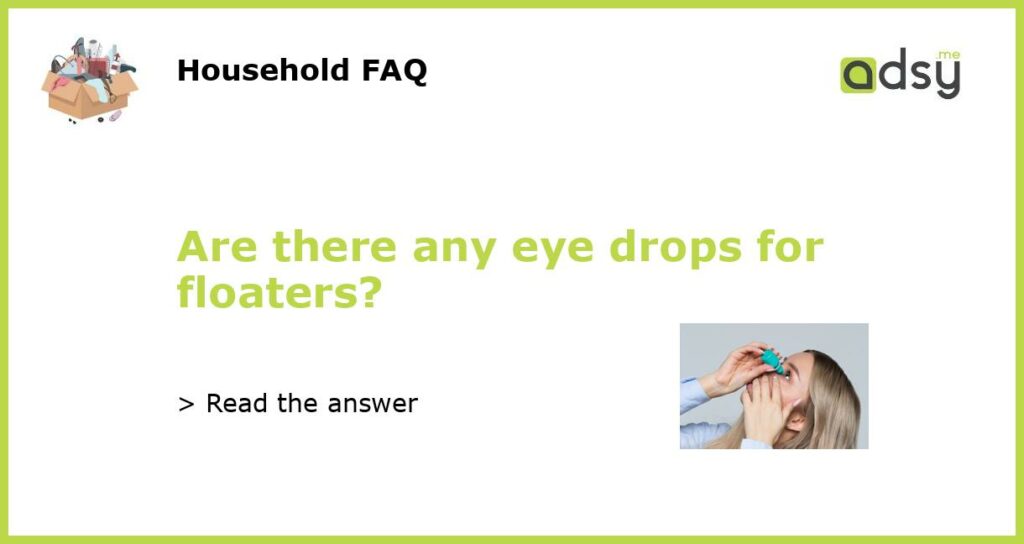Floaters: What They Are and What Causes Them
Floaters are specks or thread-like structures that can appear in your field of vision. They are usually harmless but can be a nuisance if they appear frequently. The most common cause of floaters is age-related changes in the vitreous, the gel-like substance that fills the back of your eye. Other risk factors for floaters include nearsightedness, eye surgery, and inflammation in the eye.
Treatments for Floaters
If floaters are interfering with your vision or causing significant discomfort, you may be wondering if there are any eye drops that can help. Unfortunately, there are currently no eye drops or medications that are proven to eliminate floaters. Some eye doctors may recommend vitamins or supplements, but these are not supported by scientific evidence.
Surgical Options for Floaters
In some cases, your eye doctor may recommend surgery to remove floaters. This procedure, called vitrectomy, involves removing the vitreous and replacing it with a saline solution. While vitrectomy can be effective in reducing or eliminating floaters, it also carries risks such as cataract formation and retinal detachment.
Preventing Floaters
While there is no surefire way to prevent floaters, there are steps you can take to reduce your risk of developing them. These include maintaining a healthy weight, managing any underlying health conditions such as diabetes or high blood pressure, and protecting your eyes from injury and UV radiation by wearing sunglasses and safety goggles.
When to See Your Eye Doctor
If you experience new floaters or flashes of light in your vision, it’s important to see your eye doctor promptly. These symptoms can be indications of a serious eye condition such as retinal detachment or a retinal tear. Your eye doctor can perform a thorough eye exam to rule out any underlying conditions and provide appropriate treatment recommendations.






